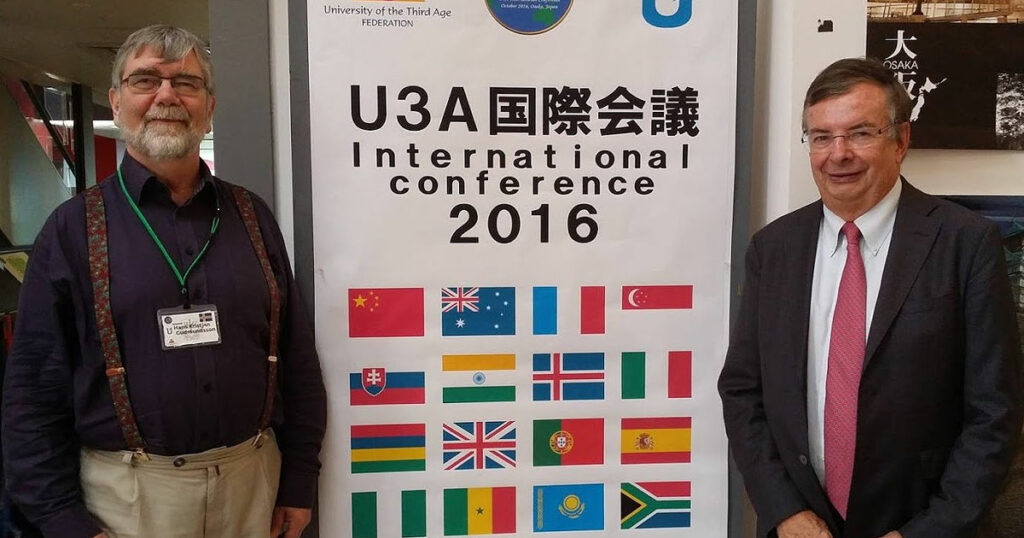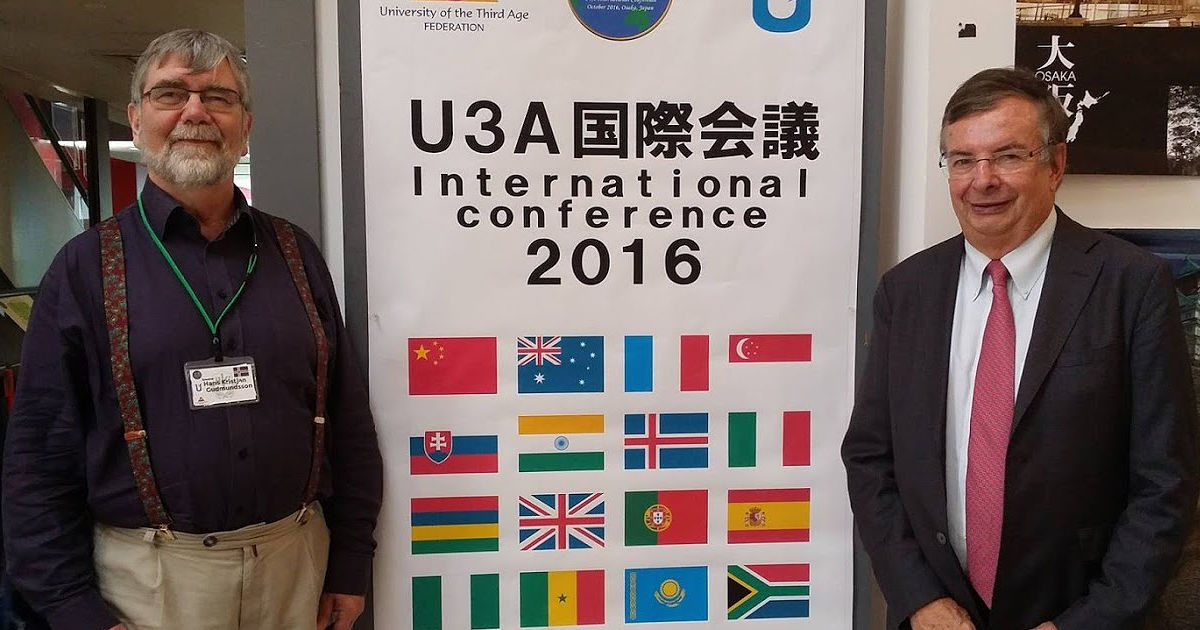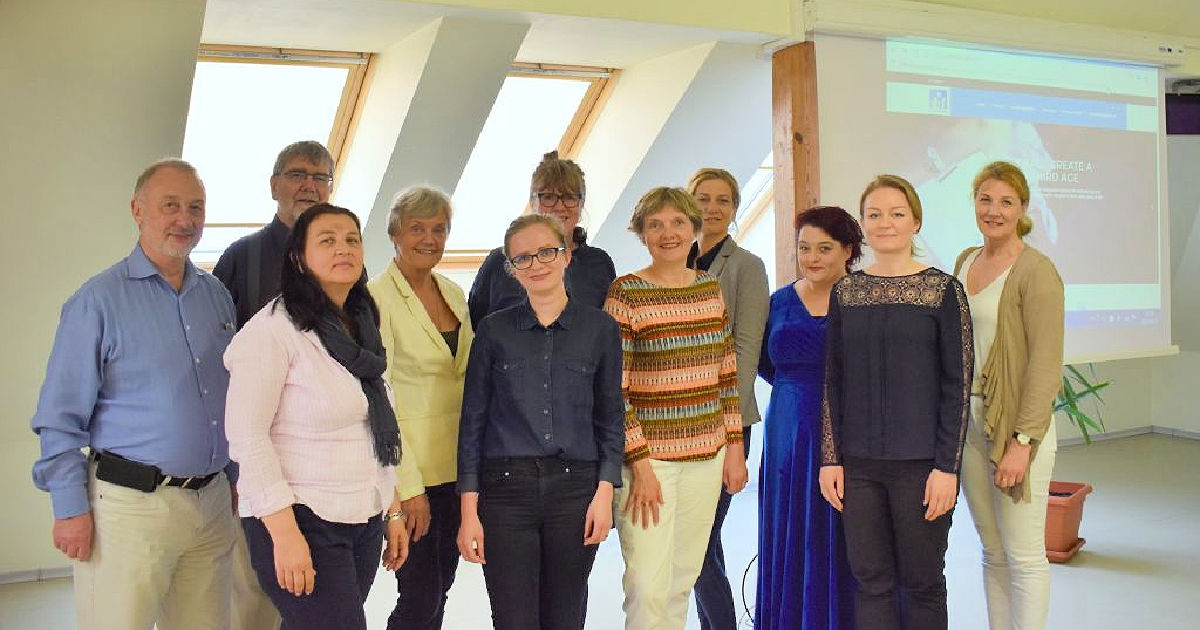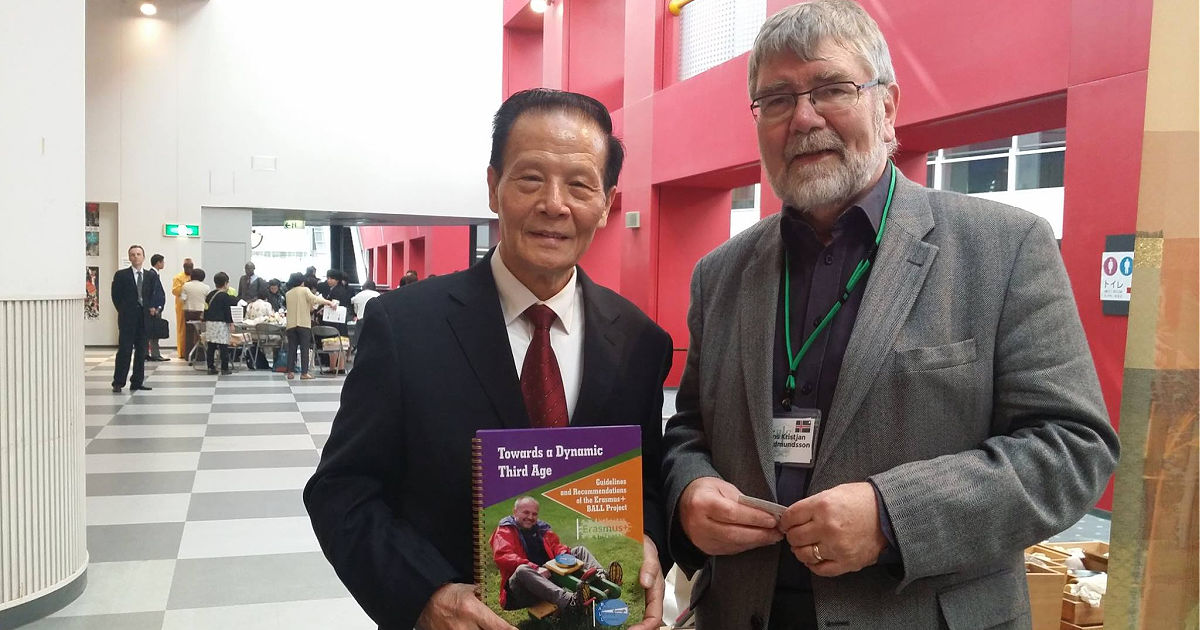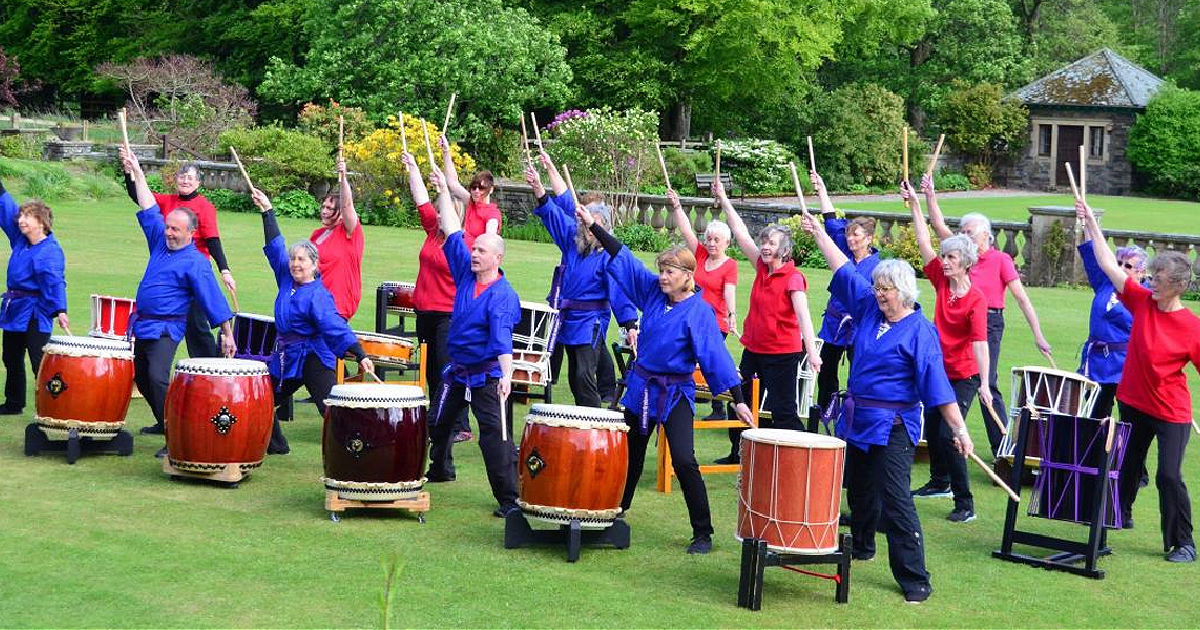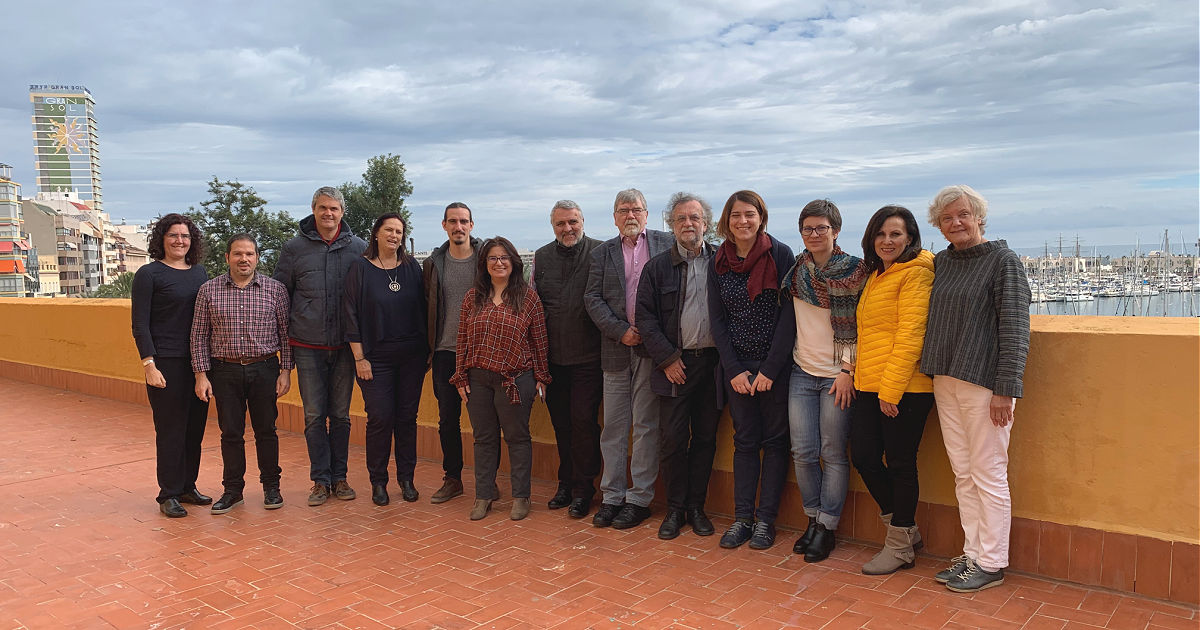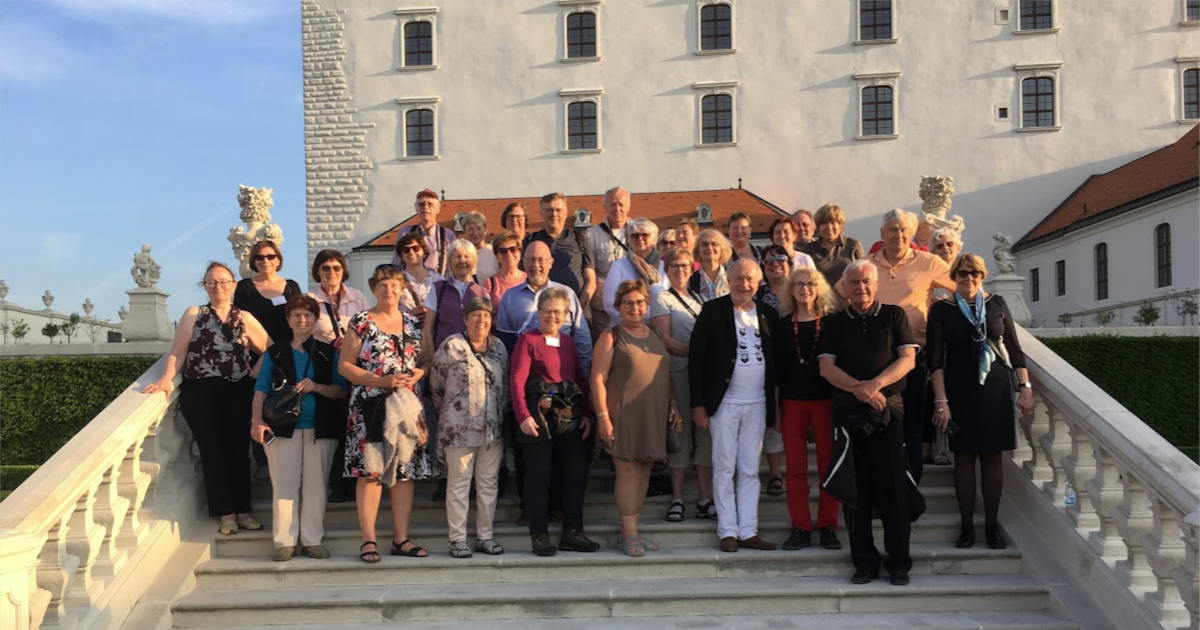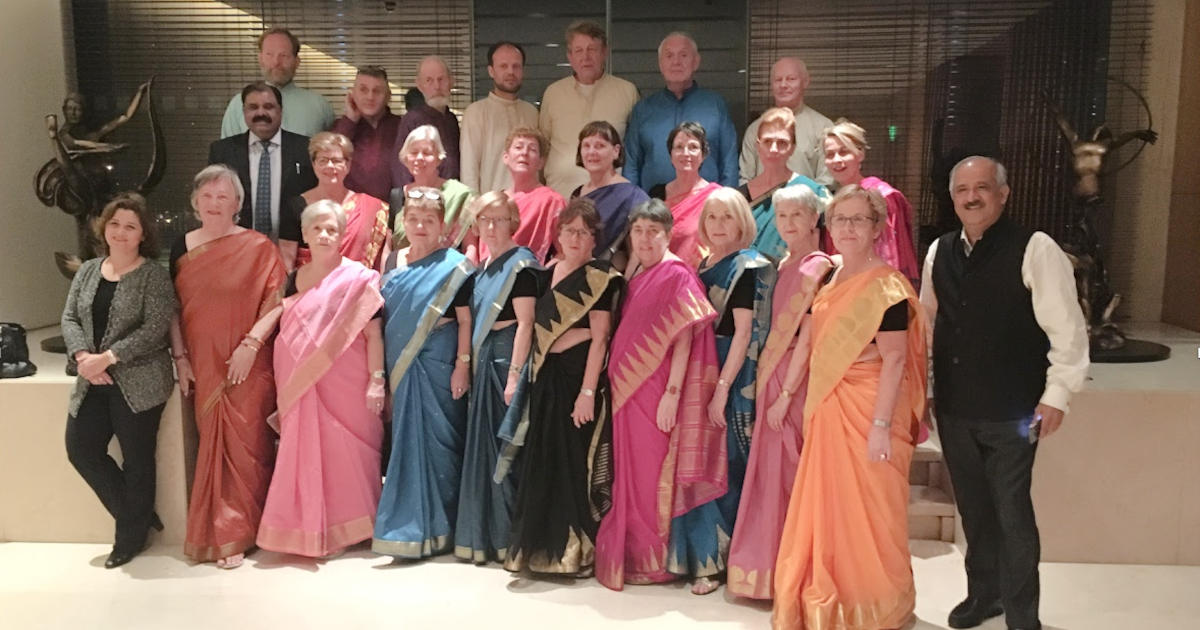1. Aims and Objectives
U3A Reykjavík, University of the Third Age, is an independent association of people in or approaching their “third age”, i.e. over fifty who want to continue learning and sharing their knowledge with their peers.
U3A Reykjavík provides an alternative forum in Iceland for people who want to keep a stimulating and active life by lifelong learning, without being in a formal educational setting. The studying is mostly a peer-based learning where the U3A members share knowledge, experience and competences.
U3A Reykjavík is the first University of the Third Age in Iceland. Its launch functioned to establish the ‘third age’ concept in Icelandic society as a period of freedom, independence, activity and enjoyment in the second half of the persons’ life course.
2. The Third Age Concept
The ‘third age’ concept is often referred to as the age after retirement, and sometimes, the ‘golden years’ of adulthood, more or less spanning from age 65 to 80. This period of life has been described as adulthood with typically fewer responsibilities, adequate financial resources and good physical health, offering rich possibilities for self-fulfilment and purposeful engagement, possibly lasting a few decades before years of biological and functional decline set in. This “young old” or “third age” is a relatively new concept in human history, and is closely linked to the increased life expectancy and the demographic developments in our societies.
However, the age ranges mentioned should be considered to be dynamic and fluid, and surely individually biased. The understanding of the term “third age” differs between countries, being associated both with negative and positive aspects of life, and more often than not linked to the retirement age. , as members are aware that the real age of retirement and the age of exit from the labour market can differ markedly between individuals, as well as from the statistical definition of the so called “old age dependency ratio”. Hence, the beginning of the “third age” is considered to be highly varied and depend on the unique life course of each individual.
The U3A Reykjavík targets all persons aged over fifty, while its activities are open to anyone irrespective of age. After all, the fifties comprise the age when the life situation for most individuals starts to change, when many begin to think ahead of the years to come, focusing especially on the years left in the labour market, or for the more the adventurous, how many years are left before a career change becomes impossible. We emphasize that the experience and knowledge of this group of people is important for the progress of society.
3. U3A Reykjavík’s Story
3.1 Foundation
U3A Reykjavík was established on the 16th of March 2012. The founder and first chairperson was Ingibjörg R. Guðlaugsdóttir, who discovered the U3A movement through the internet, and by attending a World U3A conference in India in 2010. On her return, she established contacts that gave her excellent guidance towards developing the overall aim, objectives, purposes, and logistical requirements of the first U3A in Iceland. Two other influential persons in this foundation process included Ian Funell from the United Kingdom’s Third Age Trust and Tom Holloway who was highly active in the Indian U3A movement and active in the World U3A. Although the U3A concept is still relatively new in Iceland, in recent years it has been extremely well received by Icelandic older persons and society in general. The reputation and visibility of the U3A Reykjavík is steadily increasing, and is viewed as an important forum for people in the years after the age of fifty who want to stay active in their latter part of life. U3A Reykjavík is modelled upon the Anglophone U3A model, as an independent association of people in their third age, regardless of their educational or professional background.
Its aim is to provide its members with a diversified selection of learning activities – thus, serving as a platform for the learning and mutual dissemination of knowledge as an end-in-itself. The learning programmes are mainly based on peer learning activities and there are no educational requirements, such as qualifications, for enrolment and no examinations are taken. In fact, at no point does the Reykjavík U3A use the term ‘students’ but always refers to the attendees as ‘members’, especially as there are no formal links to any university, apart from an informal agreement with the Reykjavík University to access their Open University programmes. The U3A in Reykjavík is also a member of the Reykjavík Academy which is an association of independent scholars.
3.2 Growth and activity programmes
Since its foundation in 2012 U3A Reykjavík has witnessed a consistent increase in membership, with numbers increasing from 31 at the first founding meeting to around 850 members in 2020. The membership fee has always been kept at a nominal level, while a low entrance fee is charged at most organized events. Women constitute 78% of members, and the average age is 69 years. More than half of the members are 70 years or younger and as much as 66% between 65 and 75 years of age. The mean age of members is similar for both men and women. The information on the U3A activities is generally spread through an informal, but wide-reaching, grapevine, also spearheaded by the willingness of facilitators and lecturers to take on learning programmes on a voluntary basis. The U3A Reykjavík has a highly active and much-visited website – www.u3a.is – which is the main source of information on learning programmes taking place months ahead. This website also enables viewers to register for an event, read news on U3A activities and learn more about the ethos of the U3A movement. At the same time, these sites disseminate information on international activities concerning the U3A movement, research projects related to the third age and older adult learning, and activities organized by the World U3A and the International Association of the Universities of the Third Age (AIUTA). Events, normally open to all, are also announced on the Facebook page, and through direct e-mailing to the members. U3A Reykjavik organises four different forms of activities:
- Weekly Tuesday events during wintertime. These take the form of lectures on widely diverse subjects, such as science, biology, innovation, social and political issues, environment, history, literature and other cultural issues. The events are normally both educative and entertaining, and the lecturers are experts in their fields, often university teachers and members of the U3A Reykjavík.
- A monthly discussion in café or similar venues. The chats are informal meetings, where a keynote speaker leads the chat and everyone is free to participate in the discussion over a cup of coffee or tea.
- Guided visits and lectures to companies, institutions, museums, educational spaces, such as historic or archaeological sites, and locations related to art and literature.
- Shorter courses on different subjects such as history, arts, and use of IT and social media to name a few.
The members are encouraged to form interest groups on chosen subjects. In 2018, such interest groups included ones on literature, cultural visits, and international activities. Indeed, the U3A Reykjavík is open to being an umbrella for cooperative studies and research projects on interesting subjects. The successfully completed European projects “BALL”, “Catch the BALL” and the presently ongoing “HeiM” project, described in more detail below, are good examples of projects being carried out by research teams under the auspices of the U3A Reykjavík.
The second Icelandic U3A organisation, U3A Suðurnes, was founded on the 16th of September 2017, this time in the South West region of Iceland. U3A Suðurnes counts around 50-60 members and works in a few subject groups, meeting regularly during the winter months to discuss and/or listen to lectures on topics such as the geography of Suðurnes, its fauna and flora, culture and history, and genealogy, a very popular topic, and any other subjects that members may be interested in. U3A Reykjavík did heartily support the formation of this new U3A, and one hopefully anticipates the formation of further U3As in other regions of Iceland.
3.3 International cooperation
U3A Reykjavík is one of the recent and smallest members of the International Organisation of Universities of the Third Age, AIUTA. This membership has assisted U3A Reykjavík to establish very important links to U3As in other continents and countries, resulting in many positive exchanges and bilateral contacts, as well as participation in AIUTA meetings and conferences. U3A Reykjavík has also developed international contacts through other associations. One of the most important is the participation in the “Pass it on Network”, a worldwide network promoting the exchange of ideas from all over the world on how to promote and support active ageing. These international networks have been crucial for engendering an Icelandic U3A temperament, enriching the opportunities available for healthy and active learning for third agers. Most importantly, such networking was crucial in realizing learning and research cooperative programmes that aid the transitioning of middle-aged persons into the third age, enabling the formation and execution of the European projects, “BALL” (Be Active through Lifelong Learning), “Catch the BALL” and “HeiM” (Heritage in Motion), with support from the European Union’s Erasmus+ programme.
3.3.1 The “BALL” story
The BALL project (Be Active through Lifelong Learning) aimed at developing guidelines and recommendations for early preparations for a dynamic third age. The idea was first formulated in 2013 as part of discussions on the ethos and future strategy for U3A Reykjavík. The project was accepted for funding by the European Union’s Erasmus+ programme and commenced in September 2014 involving three U3A organisations – namely, U3A Reykjavík, the UPUA (Permanent University of the University of Alicante), Spain, and the LUTW (University of the Third age in Lublin), Poland. The project results, guidelines and recommendations were published in the book Towards a Dynamic Third Age in September 2016. The book and a few interim research reports are available and can be read and downloaded here
The BALL recommendations are defined in three actions, a three-step process proposed as a “best practice” system for preparing individuals for the changes, challenges, and opportunities lying ahead in the third age. These were:
- Awareness Raising on the value and importance of the third age, directed both towards the society and the individuals themselves.
- Personal Development Academy which supports individuals who need and want to evaluate their strengths, desires and possibilities to be prepared for the latter part of their lives.
- Warehouse of Opportunities for the Third Age which consists of a virtual pool, an online portal, where individuals get access to relevant opportunities.
The BALL guidelines have been disseminated internationally and have been very well received. Indeed, the project received the Erasmus+ quality award in the field of adult education in November 2016. This general appreciation has given a large boost to the work and recognition of the U3A Reykjavík both in Iceland and internationally. Research and recommendations to the benefit of the third age will consequently be high on the future agenda of U3A Reykjavík. The logical step forward was therefore to embark on a new project implementing these recommendations.
3.3.2 The ‘Catch the BALL’ story
The aim and objectives of the Catch the BALL project were to implement the BALL guidelines and recommendations focusing on the “academy” and the “warehouse”. The project received continued support from the Erasmus+ programme and was launched in December 2016. New partners joined the Icelandic BALL partners, the STPK (Kaunas Science and Technology Park), Lithuania, and the MBM (Centre for Training and Development, Liverpool), UK. The Catch the BALL project (Catch the BALL 2018), was finalised in July 2018 and the two main outputs were launched and introduced at its final conference in Reykjavík on the 26th of June 2018. U3A Reykjavík was in charge of the development of the Warehouse of Opportunities, which is a web portal in the image of a real warehouse or a store, with web pages as racks and shelves, presenting opportunities as products on the shelves. The aim is to offer people over fifty a user-friendly gateway to diverse opportunities to enhance the content of their latter part of life, improve their skills and life fulfilment, and getting advice on finances, on starting a new career and other issues useful for creating their own dynamic third age. The European and Icelandic Warehouse of Opportunities are now run by U3A Reykjavík and can be accessed at its web link
The other output of the project developed from the BALL idea of a personal development academy is a manual for trainers and facilitators, the “Academy of Opportunities” giving ideas to those who would assist people in their latter part of life in assessing their possibilities for a prosperous and enjoyable future. This manual can be accessed through the Warehouses.
3.3.3 The HeiM project, Heritage in Motion
The HeiM project started in November 2018 as a cooperative research project with the support of the Erasmus+ programme of the EU.
The HeiM project aims to promote the knowledge of heritage at a local and European level for the purpose of enhancing the values inherent in cultural heritage amongst citizens, a fundamental part of the development of European society. The project is directed by the UPUA (Permanent University of the University of Alicante), Spain. Other partners apart from U3A Reykjavík are POUZ (The Public Open University of Zagreb), Croatia, and TDW (Democratic Society East Foundation) Warsaw, Poland.
The project develops and implements innovative methods for older adult teaching which value this group’s experience and skills and include both constructive and cognitive methodologies. This includes learning in context; flipped classroom; project-based learning; and the use of ICT, since we believe that open education as well as the innovative practices characteristic of the digital era must play a fundamental role in today’s society. Such practices are trained by learning to apply and use a smartphone or a tablet to trace and define routes to the heritage in the cooperating countries.
A mapping of the possible heritage resources for older adults is carried out reflecting the current situation in the partner countries as far as the value of cultural heritage for seniors is concerned. A training programme for older adults wis carried out, aiming at encouraging trainers to use innovative tools, and training older adults with new skills. After the training, the students will have acquired the necessary knowledge and skills to prepare active routes on heritage. Each country will prepare different heritage routes that will be published on the project web page in order to facilitate accessibility to the research undertaken.
The project ends in January 2021 after having suffered some delays due to the Covid-19 situation in Europe.
4. The Warehouse of Opportunities is open and running
The Warehouse of Opportunities connects people fifty years and above, who seek interesting ideas and opportunities for their future activities with providers of these opportunities.
Following the formal opening of the Warehouses of Opportunities at the final conference of the Catch the BALL project, U3A Reykjavik operates the Icelandic and European Warehouses of Opportunities as a specific project under the direction of a separate steering committee. The warehouse concept is continuously being further developed with the support of U3A Reykjavik and several other Icelandic sponsors, some of whom have followed the development through all its precursors in the BALL and Catch the BALL project.
The warehouse concept has been very well received in Iceland as well as internationally. U3A Reykjavik can proudly flag that the Warehouse of Opportunity was awarded the status of a finalist in the Silver Eco and Aging Well Awards competition in 2019 for the concept design and building of the Warehouse.
5. U3A in Iceland – Future perspectives
There is no doubt that the U3A concept has arrived in the Icelandic society to stay, as the organisation and its activities are steadily gathering further momentum with each coming month. The message directed to the 50+ generation – that it is never too late to rethink your situation in life, embark on new things, fulfil your ambitions, and act upon your dreams and desires – has been enthusiastically received by the Icelandic society, irrespective of age. As the number of people in their third age will increase faster than the younger generations, it is important that society does not perceive the older generations as either useless or a burden, but celebrate their potential for creativity and productivity. The third age generation of the future will continue to live longer, be healthier and will certainly constitute a valuable human resource of knowledge and experiences strongly needed for society’s benefit rather than to be discarded. U3A Reykjavík will meet the future challenges to promote positive aging in Iceland and worldwide armed with loads of experience and ideas after these six years of operation. Surely the messages and recommendations developed in the BALL’s, the Catch the BALL’s research, and access to the Warehouse of Opportunities to consult, will certainly guide us towards a prosperous life in the third age.
